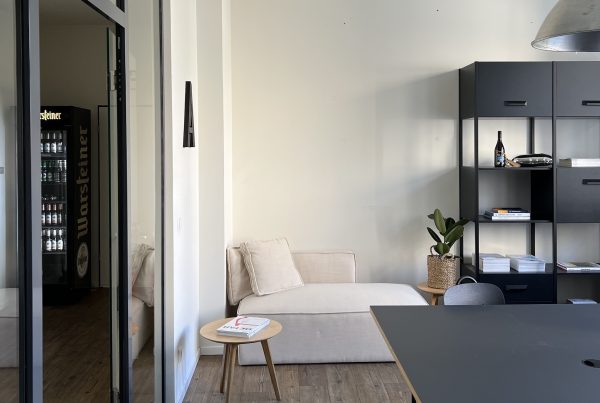Office architecture must be fundamentally rethought
So that the office has a future again: Asselmeyer architect designs contemporary modern offices
Hamburg (pts009/28.08.2023/09:00) Hamburg-based architect Justus Asselmeyer and his architectural firm Asselmeyer Architekt are trying to reinvent office architecture in Germany. “Everything has changed since the Corona pandemic. But much of the architecture is the same as before. Companies have problems attracting employees back to offices. One reason is the actually often inhumane and outdated office architecture of the last decades, which needs a fundamental reinterpretation. Office architecture needs to be fundamentally rethought, so we are rethinking all the parameters and planning the office of the future in a visionary way that is as human as possible,” says Dipl.-Ing. Architect Justus Asselmeyer, https://asselmeyerarchitekt.de/
Offices for people
Asselmeyer Architekt understands architecture as an expression of corporate culture and lived corporate values. Therefore, this should also be reflected in the architectural spaces. In addition to the design of functional and aesthetic workplaces, this also involves the creation of identity, affiliation and added value for employees and customers to the respective company. “We are currently advising three clients on the redesign of large office complexes to define and realize the office of the future,” Asselmeyer said.
Office of the future is space for social exchange and identification with the company
“We believe that the office of the future is no longer just a place to work, but much more a place for social exchange, inspiration and community. That’s why we design office spaces that are flexible, efficient and sustainable, but also foster an atmosphere of synergy, communication and learning. We call this identity architecture,” says Justus Asselmeyer, founder and managing director of Asselmeyer Architekt.
For this purpose, the office recently formulated a questionnaire, which plays a central role at the beginning of each project:
- How has the work behavior of people in the office of the respective company changed after Covid and how must office spaces (the architecture) adapt?
- How do you get your team motivated for a project in the best possible way and what do the rooms around it have to do for this?
- How do you respond to digital changes? Employees spend a lot of time on phone calls and/or video conferencing. This also changes daily office work.
- Where are workplace guidelines outdated or should be adapted to the requirements and needs of office workers?
- How can the office (at least since the energy crisis and high utility costs) be better used by the staff and also shared. How to create flexible but customized office/space systems so workstations are used most effectively.
- How do you manage to make the shared/co-working idea much more prominent.
- What architectural elements and means are needed for the office to create identity and with what to reinforce the sense of belonging to the company, to create real added value.
- How to create social interaction in the office, where not only work takes place, but also social exchange.
Identity architecture in the office brings many advantages
Asselmeyer Architekt specializes, among other things, in the development of modern office concepts that offer different spaces for different working methods and situations. In doing so, the future office takes into account the requirements for digital collaboration as well as face-to-face encounters. The “new” office can use flexible space booking systems, modular principles of co-working to ensure optimal use and utilization of office space.
Info about the concept of identity architecture for office and commerce at: https://asselmeyerarchitekt.de/
Link to press release: https://www.pressetext.com
ASSELMEYER ARCHITEKT Hamburg
Lange Reihe 29
20099 Hamburg
+49 (0) 40 524 764 040
info@asselmeyerarchitekt.de





